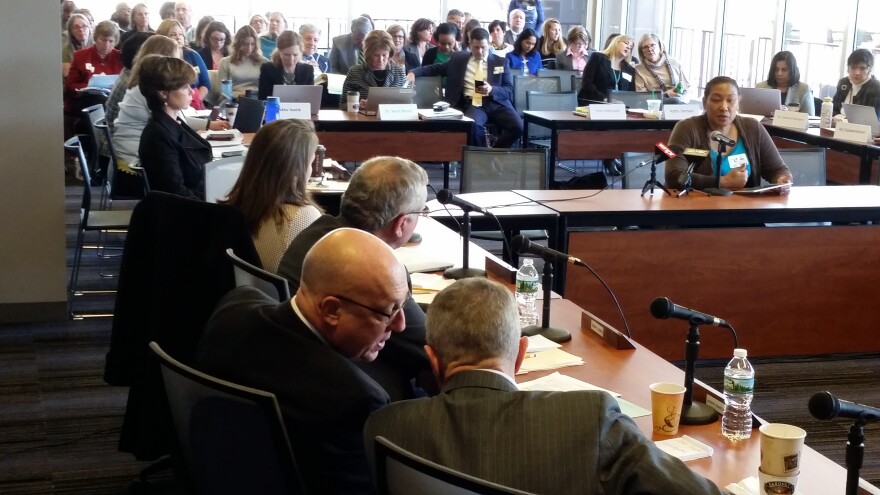New guidelines have been developed by ║┌┴¤│ď╣¤═°'s education department that describe the process parents should use for their children to be evaluated for special education services. But concerns are being raised that the would make it harder for parents, not easier, than under previous guidance.
It's called an Independent Educational Evaluation, or IEE. Parents have a right to ask for their child to be evaluated for services, and have the districts pay for it. But districts are often reluctant to agree, because, critics said, they want to avoid providing costly interventions.
Speaking at a at the University of ║┌┴¤│ď╣¤═°'s Law School, attorney Marisa Halm said IEEs have always been a tool for the privileged.
"The reality is the IEE is for the wealthy suburban parent," said Halm, who runs the TeamChild Juvenile Justice Project at the Center for Children's Advocacy. "I mean, that's the way it works here in ║┌┴¤│ď╣¤═°."
The new guidance takes away what some parents considered to be a safeguard, said Kiomary Sotillo, a parent consultant with the ║┌┴¤│ď╣¤═° Parent Advocacy Center. Under the new guidelines, parents will now have to pay for the evaluation up front, and then seek reimbursement. Evaluations range in cost from several hundred dollars to over $1,000.
"I don't think they were thinking of the low-income families, or the families that just don't have special education language," Sotillo said. "So I think instead of creating a balance, it really took the parents' rights away."
The state Board of Education set up a to develop new guidelines for IEEs. But the state came up with its own guidelines. That surprised many members because it included aspects that weren't in the recommendations.
Tamika La Salle is a psychology professor at UConn. She said some parents face the opposite problem -- they don't want their child in special education at all.
"A lot of parents don't want their student to be labeled as having a disability because of the biases, because of the perceptions, and frankly, because of the outcomes that we've seen," La Salle said.
An informal poll was taken of the audience of about 150 special educators, lawyers, and school leaders, to see who believed the new guidelines were a step in the right direction. Nobody raised their hands.


